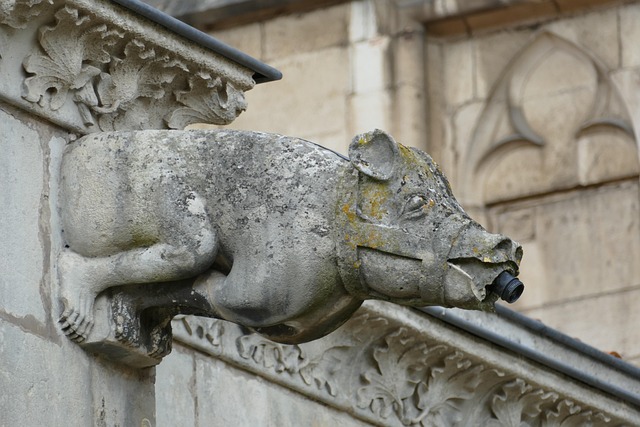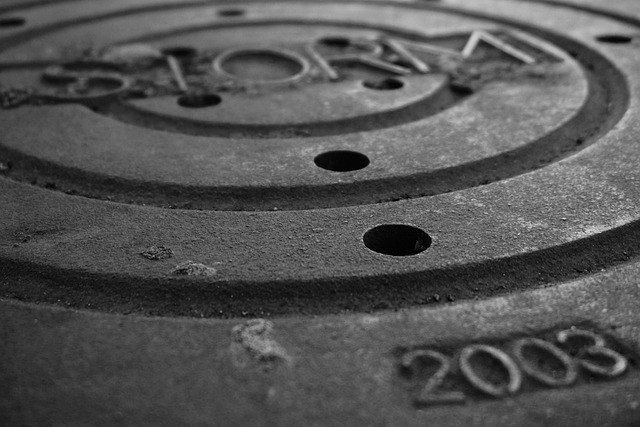Gurgling sounds in your sink or slow drainage are signs of a clogged drain. These issues often stem from hair, grease, and food buildup. Simple home remedies like plungers or baking soda and vinegar can clear clogs, but preventing them is key. Regular hot water runs, trap door installations, and eco-friendly cleaners help maintain clear drains.
Are those gurgling sounds from your sink more than just an annoying noise? They could be a sign of a clogged drain, a common household issue. Understanding the science behind these bubble sounds can help you identify potential problems early on. This article delves into the causes, from hair and grease buildup to tree roots infiltrating pipes. We’ll guide you through effective cleaning solutions and offer prevention tips to keep your drains flowing smoothly, avoiding costly clogs.
- Understanding Bubble Sounds: The Science Behind the Gurgle
- Common Causes of Clogged Drains and How to Identify Them
- Effective Drain Cleaning Solutions and Prevention Tips
Understanding Bubble Sounds: The Science Behind the Gurgle

The gurgling sounds coming from your sink don’t just signal a potential problem; they’re actually a physical manifestation of what’s happening beneath the surface. When water flows down the drain, it creates air bubbles that travel through the pipes. In a healthy plumbing system, these bubbles reach the end of the pipe and burst, releasing their energy. However, if there’s a clog or obstruction in the drain, these bubbles get trapped, causing them to gurgle and bubble as they search for an exit. This is one of the earliest signs of a clogged drain—the gurgling sound you hear when running water is suddenly interrupted.
The science behind this phenomenon isn’t just fascinating; it’s also telling. The gurgles you hear can vary in frequency and intensity, offering clues about the extent of the blockage. A mild gurgle might indicate a partial clog, while persistent, loud gurgling could suggest a complete obstruction. Understanding these sounds can help homeowners identify issues early on, preventing costly plumbing emergencies. Additionally, it’s a good practice to be mindful of what goes down the drain—from grease and coffee grounds to certain foods—as these substances are common culprits behind drain clogs.
Common Causes of Clogged Drains and How to Identify Them

Clogged drains are a common household issue, often characterized by gurgling sounds and reduced water flow. Identifying the root cause is key to effective problem-solving. Several factors can contribute to drain clogs, but understanding these signs can help you pinpoint the culprit.
Common causes include hair and grease buildup, particularly in kitchen sinks. Hair from various sources, such as combing or washing hair, can accumulate and form a sticky barrier that traps waste water and other debris. Similarly, grease from cooking should be avoided; it solidifies over time, creating a congealed mass that obstructs the drain. Other signs of a clogged drain include slower drainage after flushing, water pooling at the base of the sink, or a distinct gurgling noise when running water in another fixture.
Effective Drain Cleaning Solutions and Prevention Tips

If you’re hearing gurgling sounds or experiencing slow drainage, it’s likely signs of a clogged drain. To tackle this issue effectively, start with simple home remedies like using a plunger or a snake to clear debris accumulated in the pipes. Baking soda and vinegar mixed together, boiled, and poured down the drain can also help break up grease and other buildup.
For more persistent clogs, consider professional drain cleaning services that employ advanced tools and chemicals safe for your pipes. Prevent future clogs by being mindful of what goes down the drain—never flush non-biodegradable items or large food particles. Regularly pour hot water down the drain to dissolve grease and keep pipes clear. Install a trap door to capture hair and other small debris before they enter the pipe, and consider using enzyme-based cleaners for eco-friendly maintenance.
Understanding the gurgling sounds your sink makes is a crucial step in identifying potential clogs. By recognizing these signs, you can take proactive measures to prevent more serious plumbing issues. Regular cleaning and maintenance, along with knowing common causes like hair buildup or foreign objects, are key to keeping drains clear. Remember, addressing drain problems early can save you from costly repairs and ensure your home’s plumbing system remains in top shape.
